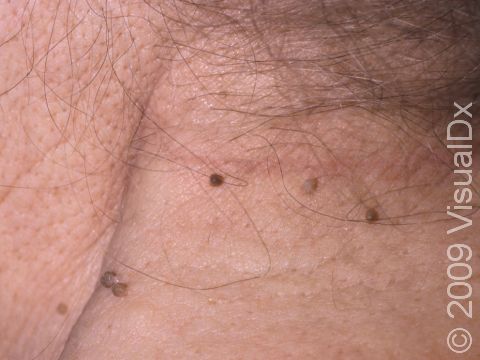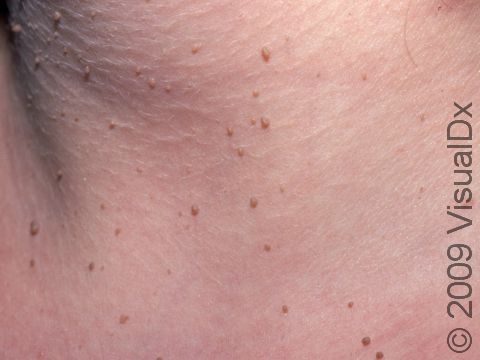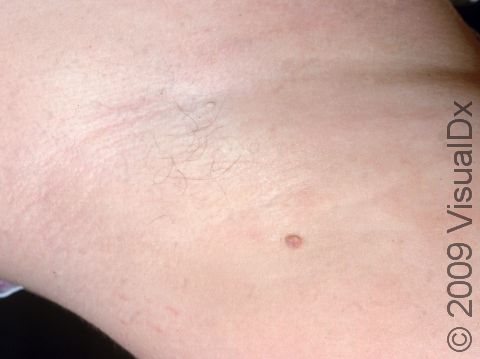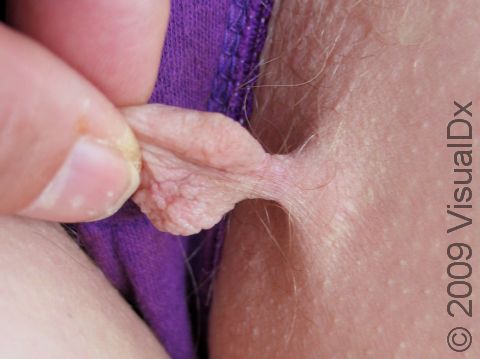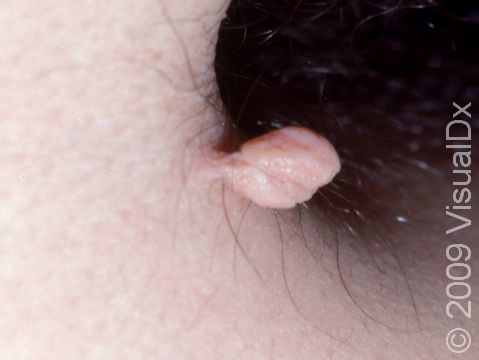Skin Tag (Acrochordon)
Acrochordons, commonly known as skin tags, are small (usually about the size of a sesame seed), benign (noncancerous) flesh-colored skin growths. They can occur anywhere on the body, but they most often occur in areas where there is skin folding, such as the neck and armpits. Skin tags are painless unless they are irritated (such as being snagged on jewelry or clothing), and then they may become itchy or tender. While there is nothing that will prevent them from occurring, they are not contagious and a doctor can remove them.
Who's At Risk?
Skin tags are very common, and anyone of any age can get one, though they are much more common in older people (in fact, more than half of adults have at least one skin tag) and people who are obese.
Signs & Symptoms
Skin tags are most commonly found on the eyelids, neck, armpits, and groin area. They are flesh-colored growths on a thin stalk, ranging in size from small to large.
Self-Care Guidelines
None necessary.
Treatments
Skin tags may be treated by:
- Snipping with scissors
- Freezing with liquid nitrogen (cryosurgery)
- Destroying the skin tag(s) with an instrument providing a small of amount of electrical current (electrodesiccation)
Visit Urgency
Skin tags are benign in nature, and, therefore, no treatment is necessary. However, you should seek evaluation from a primary care provider or dermatologist if you are either uncertain of the diagnosis or if the skin tag become irritated or painful.
References
Bolognia, Jean L., ed. Dermatology, pp.1863-1864. New York: Mosby, 2003.
Freedberg, Irwin M., ed. Fitzpatrick’s Dermatology in General Medicine. 6th ed, pp. 767, 993-994, 1827. New York: McGraw-Hill, 2003.
Last modified on August 16th, 2022 at 2:44 pm
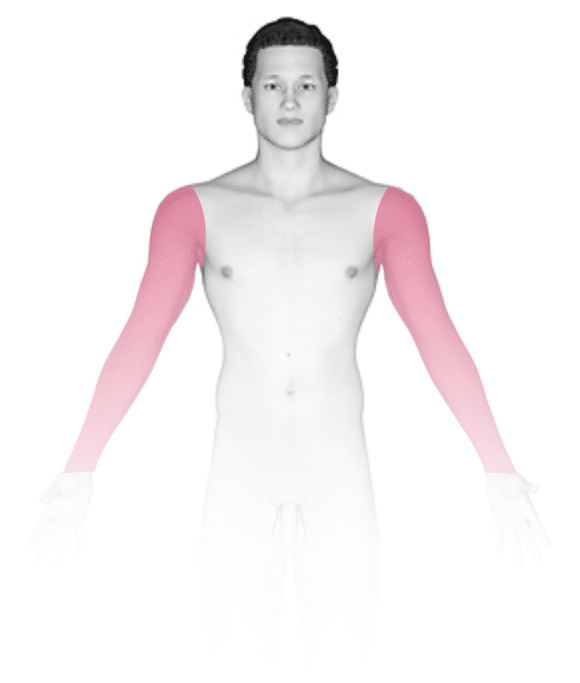
Not sure what to look for?
Try our new Rash and Skin Condition Finder
